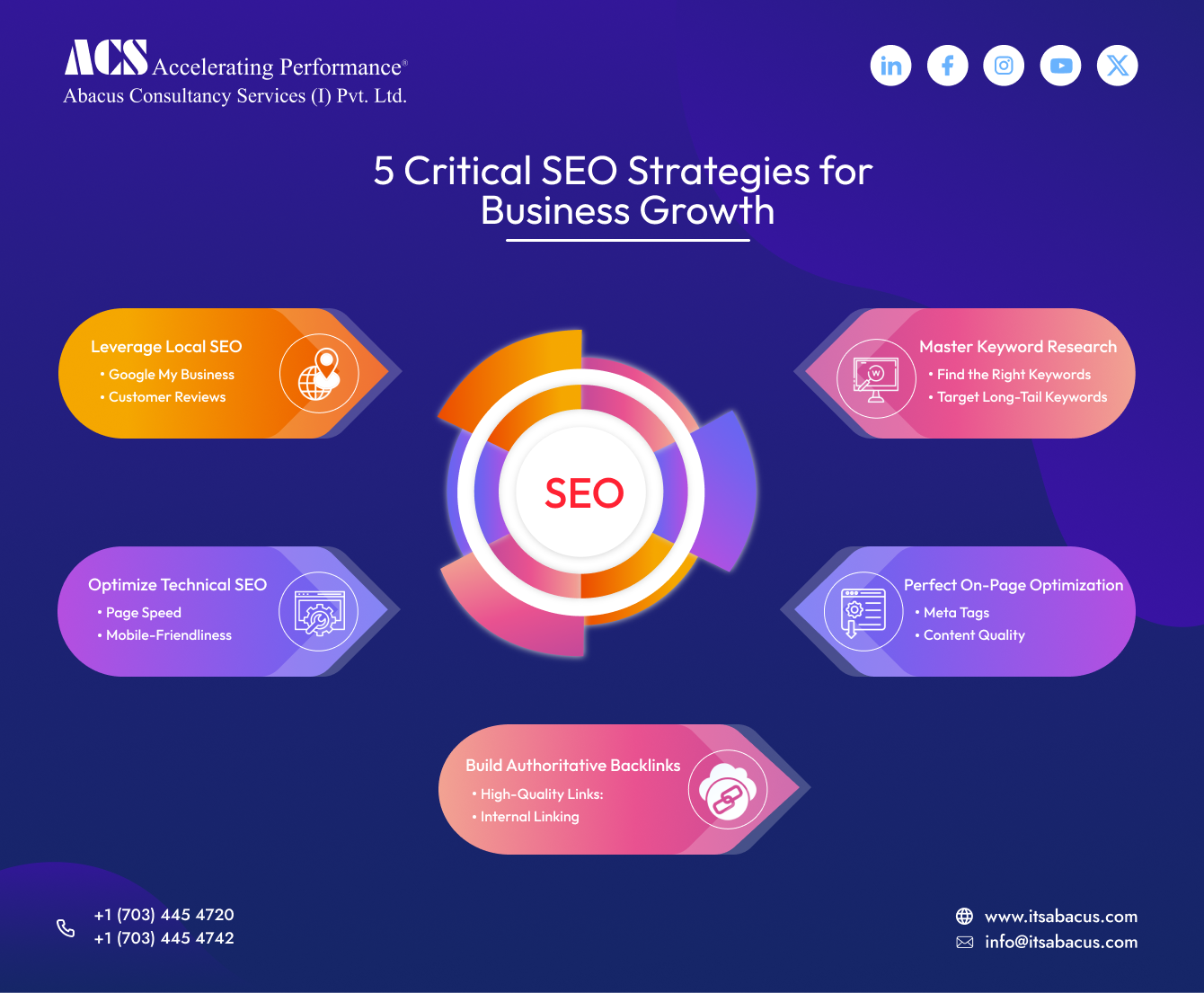SEO (Search Engine Optimization) is essential for increasing your website’s visibility and driving organic traffic. Focus on these 5 key tasks to boost your search rankings and grow your business online:
1. Master Keyword Research
Key Action: Discover what your target audience is searching for.
Find the Right Keywords: Use tools like Google Keyword Planner, SEMrush, or Ahrefs to identify high-traffic, low-competition keywords relevant to your niche.
Target Long-Tail Keywords: Focus on specific phrases that attract qualified traffic and are easier to rank for.
2. Perfect On-Page Optimization
Key Action: Optimize every page to improve search engine rankings.
Meta Tags: Ensure your title tags, meta descriptions, and headers (H1, H2) contain targeted keywords for higher click-through rates.
Content Quality: Create informative, engaging content that directly addresses the needs and questions of your audience.
URL Structure: Use clean, keyword-rich URLs to enhance SEO and user experience.
Image Optimization: Compress images for faster loading, and use descriptive file names and alt text for better search visibility.
3. Build Authoritative Backlinks
Key Action: Gain quality backlinks to boost your domain authority.
High-Quality Links: Focus on acquiring backlinks from reputable websites in your industry.
Guest Blogging & Outreach: Create guest posts or engage in outreach to secure valuable links that enhance credibility.
Internal Linking: Strengthen your site’s internal structure by linking related content to improve navigation and search ranking.
4. Leverage Local SEO
Key Action: Optimize for local searches to attract nearby customers.
Google My Business: Claim and optimize your GMB listing with accurate business details, photos, and updated hours.
Customer Reviews: Encourage positive reviews and ratings to enhance your online reputation.
Local Keywords: Include city and region-specific keywords to capture local search intent and rank higher for “near me” searches.
5. Optimize Technical SEO
Key Action: Ensure your website is technically sound for both users and search engines.
Page Speed: Use tools like Google PageSpeed Insights to improve load times, especially on mobile.
Mobile-Friendliness: Make sure your website is responsive and delivers a seamless experience across all devices.
XML Sitemap: Create and submit an XML sitemap to help search engines index your pages faster.
Robots.txt: Configure your robots.txt file to control which parts of your site search engines can and cannot crawl.



